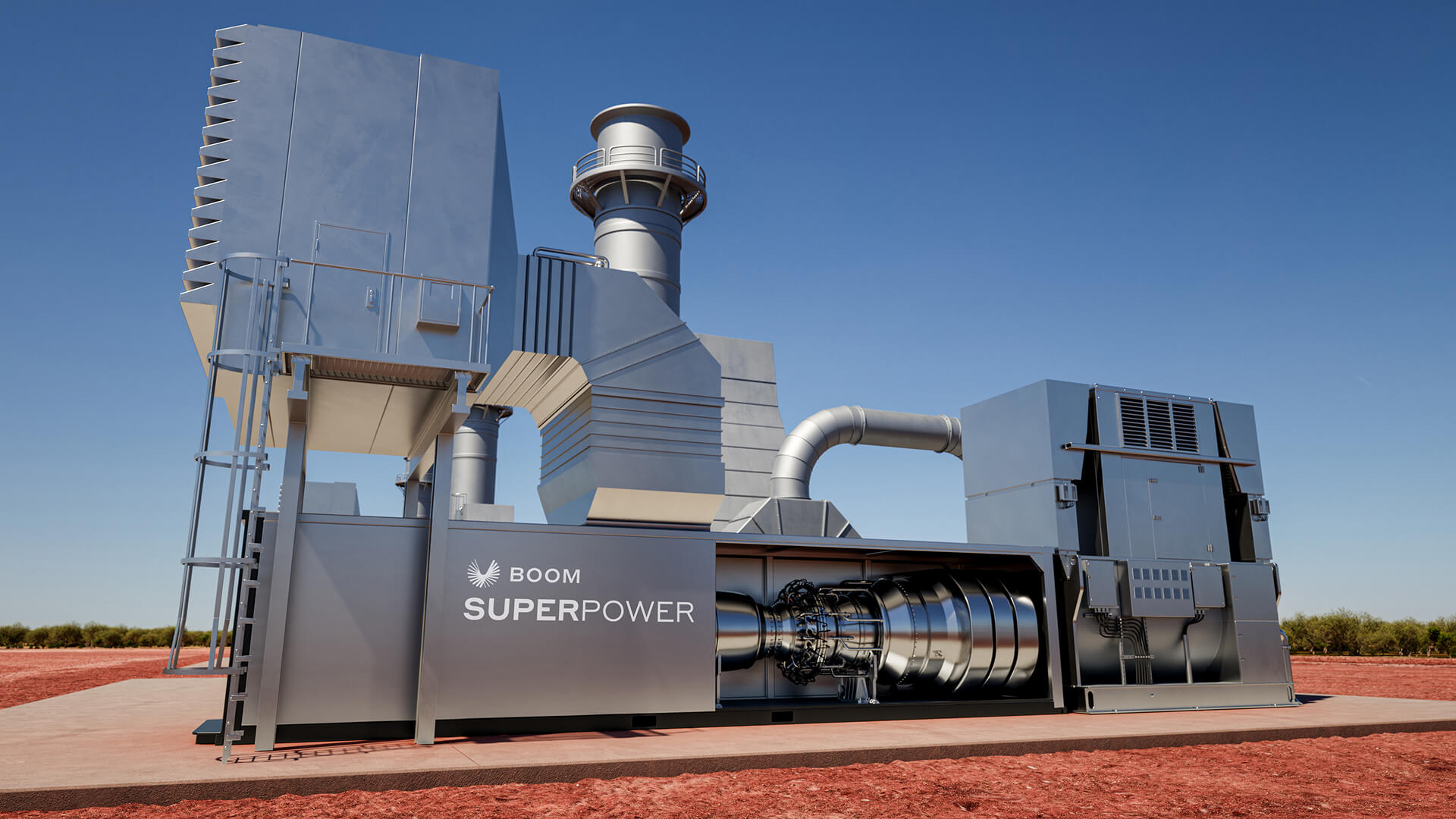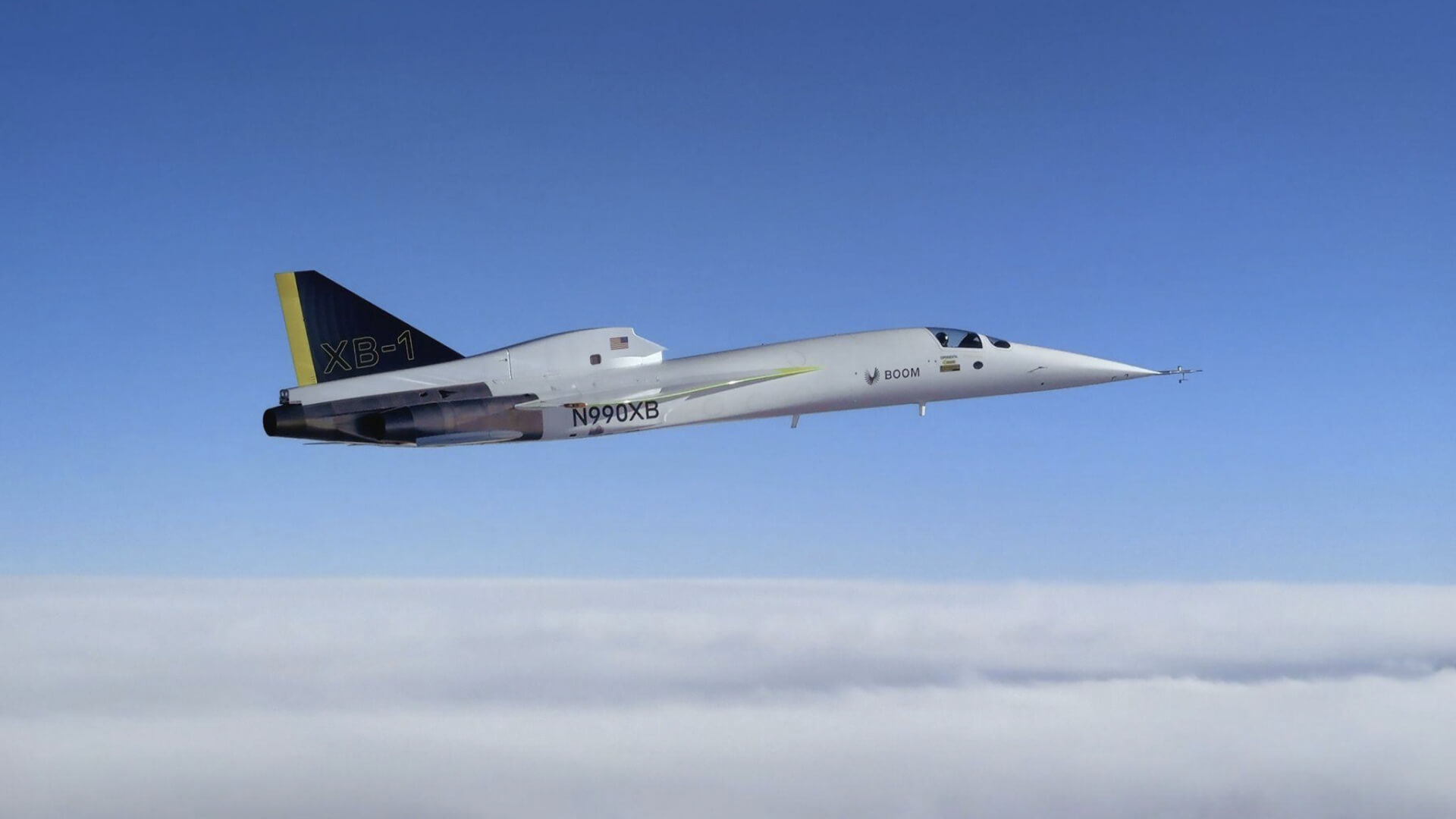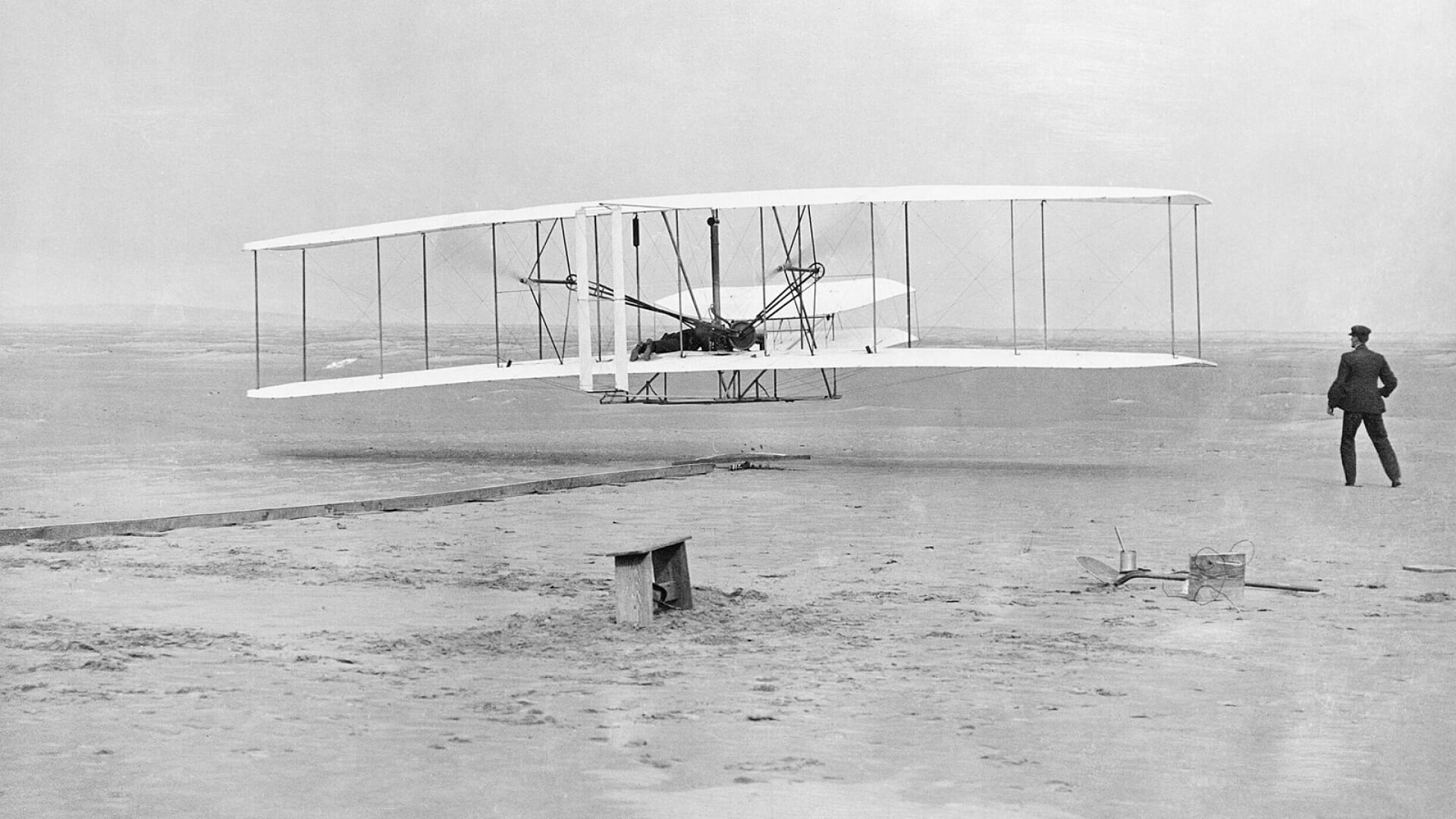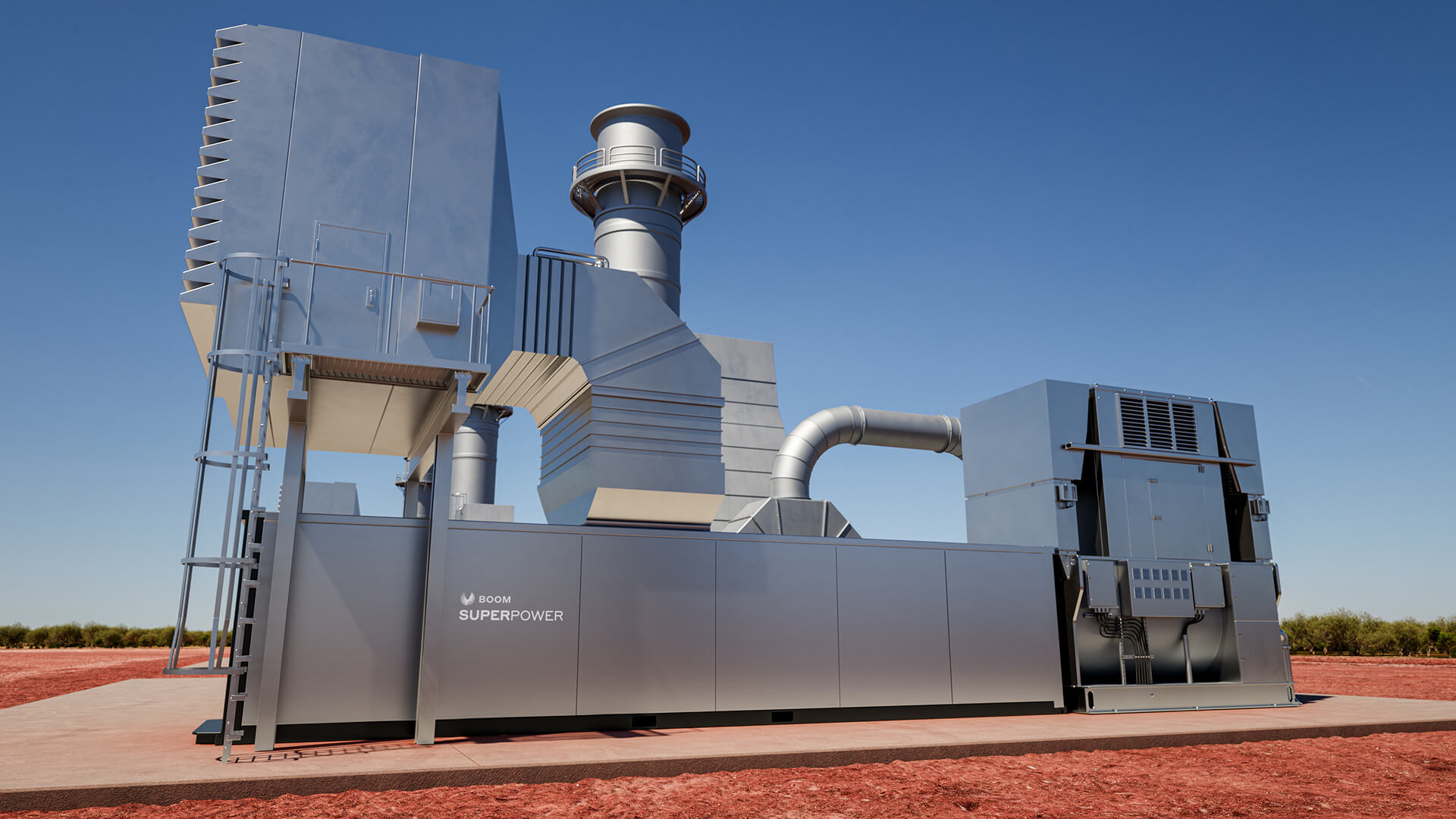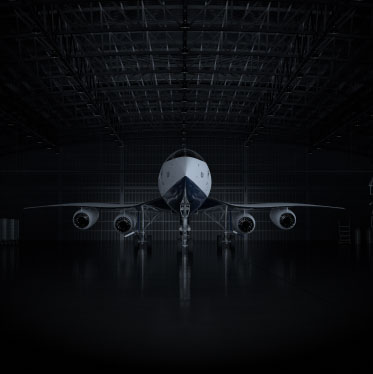Travel and fashion have been interconnected since the Jet Age — a time where dresses, heels, suits and ties were commonplace when flying at 40,000 feet. However, as the passenger experience has taken a backseat, so has our travel fashion, more often opting instead for comfort.
As a part of creating an inspiring air travel experience, Boom Supersonic is launching an exclusive travel capsule collection with Ministry of Supply, an innovator in science-led, environmentally-conscious workleisure apparel and accessories. Like Boom, Ministry of Supply believes that comfort and fashion can and should coexist — and do so sustainably.
The limited-edition collection is inspired by Overture, Boom’s supersonic airliner, and reflects a more connected world where travel time is reduced by half, sustainability is the standard, and comfort is always in style.
Both companies share a passion for the future of aviation, and this capsule collection is created with a supersonic lifestyle in mind. “Your ability to move through a city or the world quickly makes you feel connected to it,” says Ministry of Supply’s Co-Founder & President Gihan Amarasiriwardena.
“The supersonic lifestyle should be seamless and fast.”
***
The Boom Supersonic capsule is a six piece ‘system’ designed for those who value time, incorporating fundamental engineering and performance principles, including:

The world’s fastest blazer. Like the world’s fastest and most sustainable supersonic airline, Overture, the Kinetic Blazer is engineered for efficient travel, with warp-knit, wrinkle resistant stretch fabric. Kinetic has broken two Guinness World Records for the fastest half-marathon in a suit, and is crafted by a team that specializes in carbon fiber used for aircraft fuselages.

Coffee-powered socks. Atlas Crew Socks pair body-mapped cushioning with odor-absorbing, coffee-infused yarn, to maximize freshness from takeoff to touch-down.

3D Print-Knit eye mask. Moisture-wicking fabric helps to mitigate dry eyes, designed and knit in 3D to create a form-fitting, light-blocking seal around the eyes for more peaceful overnight trips.

Travel blanket. Made from 100% recycled material, this blanket is perfectly sized for travel, and moisture-wicking for next-level humidity control, creating a more comfortable microclimate in flight.

Weekend tote. An all-purpose tote large enough to carry the essentials, designed with tough, nylon-webbed shoulder straps for enhanced durability.

Travel cup. A vacuum-insulated stainless steel mug keeps your favorite travel beverage at just the right temperature throughout your journey.
***
Growing up in western Massachusetts, Amarasiriwardena found a love for outdoor gear at a young age. He ran with the Massachusetts Institute of Technology (MIT) track and field team, which kept athletic apparel top of mind as he worked toward his engineering degree.
“I witnessed this shift from cotton running shirts to Nike Dri-Fit and Under Armour,” he says. “There was a takeover of the entire space in just a couple of years.”
As an engineer, he noticed the materials; as an athlete, he noticed how those materials impacted people’s performance. It was clear in that moment there were plenty of applications for comfort outside of athletics. Think: wrinkle resistance for the workplace.
When Amarasiriwardena first started at MIT, he wanted to found a materials company to distribute his products to more consumer-driven brands. But as he fell in love with the sports technology space, he realized there was so much to be done from a wider perspective in terms of creating garments and products.
“I wanted to take performance materials and make them applicable for biking around a city on the way to work,” he says. “So I started making dress shirts out of running shirt material.”
Amarasiriwardena began promoting his work around campus. Soon after, one of his professors introduced him to a business school student with similar interests, but whose focus was on dress socks. Aman Advani had been working in consulting before starting at MIT, and traveled almost every week to meet with clients. Dress socks at the time were thin and not very moisture resistant, so he created a product that had more padding, and was more breathable for long days and extended flights.
Amarasiriwardena and Advani immediately knew they had to work together.
About 10 years ago, Ministry of Supply launched on Kickstarter with their first two products — the Apollo Shirt, a moisture-wicking, wrinkle-free dress shirt built with temperature-regulating material used in NASA space suits; and Atlas Socks, built with body-mapped cushioning and powered by odor- and moisture-mitigating, coffee-infused yarns.
“Our focus was, and still is, hybrid workleisure products, a message that echoes through the Boom capsule,” Amarasiriwardena says. “We are focused on an evolved workday, where people go into the office for a few hours and then go home to walk the dog. Or, in the near future, people who fly supersonically, leaving from New York and arriving in London for a business meeting by lunch time. You can absolutely be comfortable and productive at the same time.”
Throughout the past 10 years, Ministry of Supply, whose flagship store is located on Boston’s fashion-forward Newbury Street, has operated less like a traditional retailer, and more like a tech company.
“Product design normally starts with a mood board, gets sampled, and goes straight to market,” Amarasiriwardena says. “We operate more like a car or aircraft company, where the engineering design process is very iterative.”
The Ministry of Supply design process starts with a hypothesis and consists of tests and adjustments until the product has been optimized for its audience — in this instance, supersonic passengers.
“We marry the engineering process with a reverence for time-tested designs,” he says.
***

“We develop materials that look like traditional cotton and wool, but stretch like athletic gear,” Amarasiriwardena says. “And we always keep sustainability at the forefront — something else we have in common with Boom.”
Apparel production accounts for 8% of global carbon emissions, he adds. It’s one of the things that drove Ministry of Supply to become Climate Neutral Certified, meaning they have measured, reduced and offset their entire carbon footprint.
This strategy is in line with Boom’s goals, recently outlined in the 2021 Environmental Sustainability Report, which detailed steps to achieving net-zero carbon by 2025.
“We think a lot about the materials we use and the choices we make,” Amarasiriwardena says.
Ministry of Supply pioneered 3D Print-Knit production, an on-demand, zero-waste production technique (used to craft the eye mask in this capsule collection). They also use carbon capture renewable fibers, and an increasing percentage of recycled material.
Not only are the resulting products sustainable, but they’re also meant to last longer than the competition.
“Our products undergo testing for abrasion, pilling, shrinkage, colorfastness, seam strength and wash cycling to ensure they exceed the industry standard,” he says.
Lastly, Amarasiriwardena spoke about the importance of their factories adhering to the highest standards. All of their factories are certified through WRAP (Worldwide Responsible Accredited Production) and BSCI (Business Social Compliance Initiative).
***
“Flying supersonic is not just a means – it’s a signal that you move quickly, value efficiency, treasure joy, and believe in the power of science,” says Amarasiriwardena. “We’re thrilled to be able to bring this travel capsule to the world, and inspire trips to far off destinations enabled by supersonic flight.”
The supersonic fashion capsule collection will be available July 15 on Ministry of Supply’s website, while supplies last. Explore the collaboration here.

